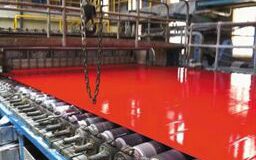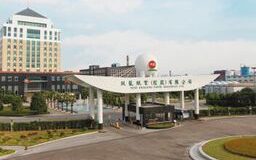He’s Got the Pulp
DAYANNE SOUSA
Walter Schalka, CEO of Brazilian pulp and paper producer Suzano, is Fastmarkets RISI’s Latin American CEO of the Year for a record-setting fifth consecutive time. Leader of the main market pulp producer in the world, with about 29 percent of the world’s share of bleached hardwood market pulp, Schalka now controls a group with capacity to produce 11.4 million metric tpy of pulp.
Analysts who voted for Schalka praised his attitude toward transparency and effective communication with the market. “I vote for Mr. Schalka for his commitment on supply discipline, his openness when addressing the outlook for shareholder value, as well as his focus and clarity when speaking about profitability,” one analyst wrote. Another voter mentioned Schalka as an influencer and an active participant in social media, “leading important discussions” for the sector and the Brazilian industry.
NEW CHALLENGES
After concluding in 2018 the merger with Fibria that transformed Suzano into a global leader, Schalka now has the challenge of steering the pulp and paper giant through a turbulent 2019. Volatility in pulp prices is forcing the company to slow down its growth pace, prompting Suzano to take drastic moves to contain price erosion. In a delicate strategy, the company opted to cut its annual pulp production by 1.5 to 2 million metric tons in 2019, to rebalance inventories in the chain.

“We do not find it viable to produce at a faster pace than our clients need,” Schalka said earlier this year, when he confirmed that the company ended the first quarter of 2019 with 3 million metric tons of pulp in its inventory—double what it had in September 2018 (also considering Fibria’s inventories in 2018).
The CEO argues, however, that the short-term turbulence should not affect the company’s vision for the future. “We continue to believe that we will keep creating value for our shareholders, and we will. Our team is highly motivated and engaged to find a way, and to find alternatives for creating value every day.”
In the company’s view, the recent price drop in China was caused by a combination of macroeconomics and specific sector-related factors, but Suzano believes such stress does not change the perspectives of overall market fundamentals. “China represents almost 40 percent of the company’s total sales. We have visited our clients there and we do not see structural change in the region, only minor adjustments in certain markets after the trade war.”
FUTURE INVESTMENTS
Despite current instability in the pulp market, Suzano is keeping an eye on future growth opportunities. Even though the company believes it is too early to talk about an expansion project, Suzano admits to be actively expanding plantations to serve a future project.
“We have two possible regions to receive a new mill and on which we already have wood surplus: the states of São Paulo and Mato Grosso do Sul,” Schalka said. “We have a Real 1.4 billion (US$369 million) capex this year that will be used for this purpose and also to reduce our average mills-to-forest distance radius from 240 km to 150 km.” The company, however, does not disclose how much it intends to invest for each of those purposes.
The CEO said that any new capacity should be analyzed, targeting a cash cost lower than the company currently has. Suzano also has several other growth options, including M&A. Outside of Brazil, the company could target assets in softwood and paper, while inside its home country the focus could be on the consumer goods sector.
Aside from market pulp, Suzano produces 1.3 million metric tons of paper. Recently, the company has been strengthening its new product offerings, such as biodegradable cupstock and paper drinking straws, focusing on niches that are growing due to banning of single use plastics. The company is also working hard to become a relevant player in the tissue segment, after it installed two machines at its Imperatriz and Mucuri mills. To pave ways for future consumers, it has also developed a fluff pulp made from 100 percent eucalyptus, and will soon trade lignin.
The company’s overall competitiveness can be measured by its global footprint, with sales to more than 80 countries and annual exports of Real 26 billion (US$6.85 billion), as well as by the scale of its operations, with 11 plants in Brazil and approximately 37,000 direct and indirect employees.
FINDING SYNERGIES
While there is no future investment plan confirmed, Suzano focuses on the operational synergies and deleveraging process after the merger with Fibria. The company announced it expects to capture around Real 800-900 million (around US$211-237 million) in yearly synergies between 2019 and 2021.
The integration of the two companies should result in cost reduction; lower expenses; and capital investments deriving from the areas of supplies, forestry, industrial, logistics, commercial, administrative, and personnel.
This year, Suzano also celebrated its ADR (American Depositary Receipts) listing on the New York Stock Exchange. The company ended the first quarter of 2019 with financial leverage of 3.3x, as a result of volumes and also on the changes in working capital related to the increase in inventories that it had during the period.
Schalka stressed that the company has no financial covenant that could be impacted by the leverage look going forward. “We want to be within the limits of our financial policy, which is 3.5x. We will be managing our balance sheet taking that into consideration. I believe that we are going to have a reduction in working capital usages with the production estimate that we have and the sales that we expect to have. Our inventories should be going down continuously throughout the year.”
About Walter Schalka
Walter Schalka began his career at Citibank and later joined the holding company of Grupo Maepar. In 1989, he began working as chief financial officer at Dixie  Lalekla. After the 1995 merger between Toga and Dixie Lalekla that created the Dixie Toga Group, he became general director. In 1997, he became the group’s CEO and played a decisive role in its expansion, merger, and transfer of control processes. In May 2005, he joined Grupo Votorantim as CEO of Votorantim Cimentos, where he was responsible for the operations in Brazil and 14 other countries. In January 2013, he became CEO of Suzano Pulp and Paper. Since that time, he has been named Latin America CEO of the year a record-breaking five times.
Lalekla. After the 1995 merger between Toga and Dixie Lalekla that created the Dixie Toga Group, he became general director. In 1997, he became the group’s CEO and played a decisive role in its expansion, merger, and transfer of control processes. In May 2005, he joined Grupo Votorantim as CEO of Votorantim Cimentos, where he was responsible for the operations in Brazil and 14 other countries. In January 2013, he became CEO of Suzano Pulp and Paper. Since that time, he has been named Latin America CEO of the year a record-breaking five times.
Schalka holds a bachelor’s degree in engineering from the Technological Institute of Aeronautics (ITA) and a graduate degree in business administration from the Getulio Vargas Foundation of São Paulo (FGV-SP). He also participated in the executive programs at IMD (Switzerland) and Harvard University (USA).




